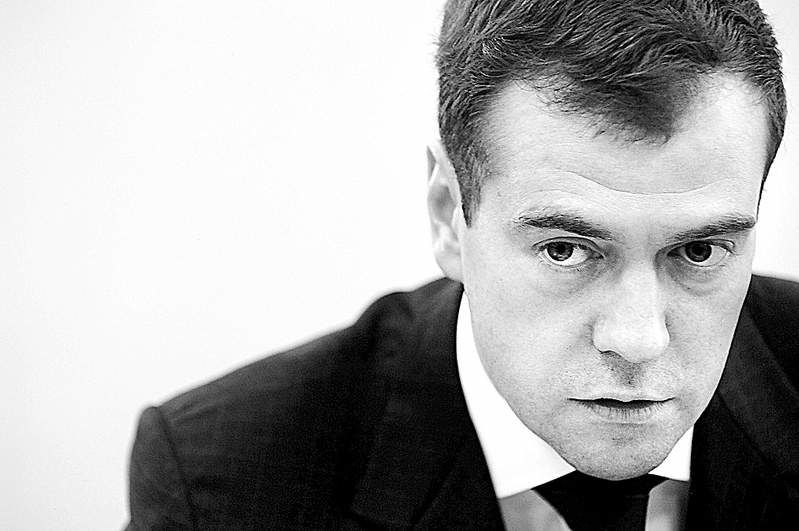A puzzle over intentions in Russia
Published 5:00 am Thursday, May 7, 2009

- Dmitry Medvedev is a former law professor who appears to have sympathy for the difficulties of human rights groups. Even so, the groups’ leaders could point to only one move by the government recently that indicated a thaw: a court-ordered release from prison of a lawyer, Svetlana Bakhmina, who was a minor figure in the crackdown by his predecessor on the Yukos Oil company.
MOSCOW — Vladimir Putin once characterized liberals and leaders of human rights groups as jackals who scavenged for handouts at foreign embassies. His protege and successor, Dmitry Medvedev, recently met with some of those very people, praising their work and saying that they had been treated unfairly.
Yet Medvedev then left it at that. No new policies or aid.
About a year after becoming Russia’s third president, Medvedev remains something of a puzzle, and the financial crisis has only deepened the questions about his intentions. Is he the affable front man for the business-as-usual hard-liners in the Kremlin, a puppet president who offers soothing remarks, but little else? Or is he a genuine reformer who is edging Russia away from the more heavy-handed practices of Putin, but needs time to make his mark?
Medvedev lately seems to have gone out of his way to showcase his supposed liberal leanings and to distinguish himself from Putin, who is now prime minister. Medvedev first gave an interview to a fiercely anti-Kremlin newspaper, Novaya Gazeta, whose reporters have been killed and harassed in recent years.
He then convened the meeting with human rights and related advocacy groups on April 15. They have long complained of government harassment and are now operating in such a climate of intimidation that some of their leaders have hired bodyguards.
“It is no secret that there is a seriously distorted perception of human rights activities in our country,” Medvedev said at the meeting, issuing the kind of apology rarely, if ever, heard from Putin.
“Many officials are now under the impression that all nongovernmental organizations are enemies of the state and should be fought, so that they do not transmit some sort of disease that may undermine the foundations of our society,” Medvedev said. “I think such an interpretation is simply dangerous.”
If his statements were heartening to the groups, they were, as often is the case, not accompanied by action. And in general, it is difficult to discern even a minor shift in how the Kremlin wields power under Medvedev.
The recent mayoral race in Sochi, host of the 2014 Winter Olympics, appeared to have been orchestrated using the same techniques honed in the Putin era. Opposition candidates were kicked off the ballot or subjected to intensely hostile television coverage. The Kremlin’s favorite won 77 percent of the vote after barely campaigning.
“For now, Medvedev is just pronouncing nice words,” said Alexei Simonov, who is president of the Glasnost Defense Foundation in Moscow, which promotes media freedom, and was at the meeting. “And he has done a lot of that. But there has been a complete lack of deeds.”
Medvedev’s comments are regularly parsed for signs of discord with Putin, who is considered Russia’s paramount leader, and it is perhaps possible to glean from them a rebuke to Putin’s style.
But it seems far more likely that Putin has chosen to let Medvedev adopt his own tone as long as he does not alter the government’s course.
“We so want to believe that things are getting better that we sometimes confuse our expectations with what is really happening,” said Irina Yasina, an analyst at the Institute for the Economy in Transition in Moscow, who was also at the meeting with Medvedev. “We so want to believe that there is a big difference between Putin and Medvedev. And sometimes our hopes prevent us from seeing the reality.”
Beyond the debate about whether Medvedev is sincere, there is another issue: does he have the power to carry out significant changes in civil liberties, political pluralism and related matters, especially during the financial crisis?
Putin, of course, is still in office. As in Soviet times, there are competing groups of senior officials in the Kremlin — some liberal, some decidedly not. Some have signaled that it would be a mistake to consider ceding control, now that Russia is facing widespread unemployment and fears of disorder in regional centers.
For now, the liberals say they have not given up on Medvedev, though they have grown very discouraged.
Simonov, the leader of the media advocacy group, recalled that when he left the meeting with Medvedev, he ran into a group of executives who were arriving for their own consultations with the government.
They were the heads of the national television networks, which have come under stiff official control. And Simonov said he realized that while he was not a frequent visitor to the Kremlin, those executives most definitely were.
NATO tensions
Russia and NATO sought to limit damage to their relationship Wednesday after expelling each other’s envoys and despite Moscow’s criticism of military exercises in former Soviet Georgia. Russia had said NATO’s war games amounted to Western meddling in its sphere of influence, and called NATO’s expulsion of Russian diplomats from alliance headquarters last week a provocation. On Wednesday, Russia kicked out two Canadians who were working for NATO in Moscow. But Foreign Minister Sergey Lavrov took pains to emphasize that Moscow wanted normal relations with the Western alliance, despite objections over NATO’s expansion into former Soviet republics.






